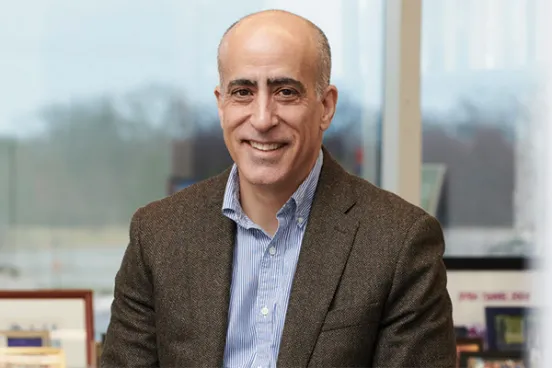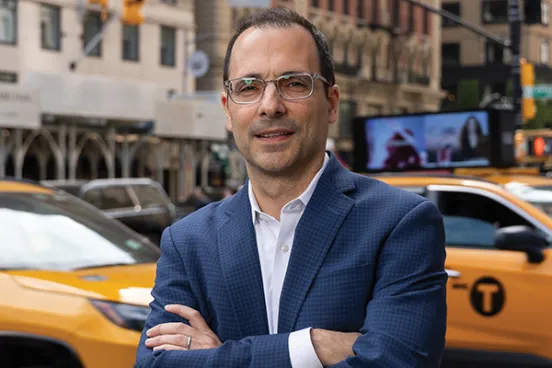
Eric Cox reached a simple conclusion after crossing paths with Rob Burnett in 2018: In entrepreneurship, timing is everything.
Cox and Burnett, ’17, first met in their Law School supersection and bonded over their shared interest in startups. After law school, Burnett went to work in business development at Netcapital in Boston, a tech firm in the nascent but beginning-to-boom financial technology (fintech) sector. Cox returned to California and joined Cooley LLP in Palo Alto, where his clients included Apple and Snapchat. But after hearing about the company that Burnett was helping to build, Cox decided to join Netcapital as employee No. 9.
“The industry we’re in is only six or so years old, and we’ve been doing this for five,” Cox says. “When there’s a market shift like this, you only have a small window of time to get in on the ground floor. We’re not just making better candles. This could be a lightbulb moment.”
Expanding investment opportunities
In the years since Cox joined Burnett at Netcapital, a lot has changed—there are now more than 40 employees and it trades on the NASDAQ, to start—and the company has developed into an ecosystem of services designed to support emerging companies at every stage of their growth.
Today, Burnett serves as the CEO of the company’s primary product, an online funding portal that aims to make investing in early-stage companies more accessible to the average person.
“The goal is to democratize access to the private capital markets,” Burnett says. “Entrepreneurs of all shapes and sizes come to Netcapital to reach investors who want to invest in private companies, which is where most of the wealth in America is being created today.”
Netcapital works with companies to issue securities on the platform, where both accredited and non-accredited investors can browse offerings and choose to own a piece of a wide variety of companies.
“The JOBS Act created Reg CF, a relatively new securities exemption that allows issuers to raise up to $5 million in capital from any investor, regardless of their accredited status,” Burnett says. “Over the last five years we’ve helped over 200 issuers raise tens of millions in capital, and allowed thousands of investors to participate.”
Seizing opportunities
Cox, the chief revenue officer at Netcapital, spends most of his time identifying and communicating with innovative companies and expanding the company’s investor base.
“We are a two-sided marketplace, but supply is arguably the more important part of the equation,” he says. “Hosting the best offerings helps us get more investors and creates a cycle that brings more value to our issuers and to our investors.”
Before a company can list on Netcapital, Cox and his team need to find it. He researches big picture analytics and market trends, searching for opportunities that are uniquely positioned to capitalize on market conditions.
A few years ago, for example, signs pointed to a looming lithium shortage, so his team targeted a number of lithium extraction companies to list on Netcapital. One of them raised around $4.5 million over two financing rounds with Netcapital; the company has gone on to receive $450 million in funding and is preparing to go public.
While most of Netcapital’s investors are individuals, Cox says there is also value in courting traditional institutional investors.
“One of the things we've been diligent about is finding the sweet spot of institutional investors that are investing consistently but maybe aren't writing million dollar checks,” he says. “The American Business Network, for example, might invest $100,000 through our platform on behalf of 10 or 20 of its members, and then we can share the opportunity with our base of over one hundred thousand members and allow them to invest as well.”
More than colleagues

Outside of the office, the self-described best friends are closer than ever—Cox even officiated Burnett’s wedding. Rather than being a point of conflict, they say their friendship has only strengthened their ability to be effective at work.
“When you are working really hard to create something new, it helps to not only respect your colleagues but to also love and appreciate them as individuals,” Cox says.
“We've grown, and we get to reflect every once in a while on how we were here early and then we get to see what we've built,” Burnett says. “And it's incredibly rewarding to get to do it with such a good friend.”







